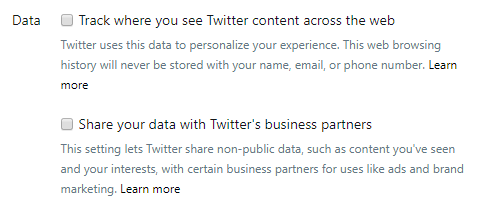Have you ever been in the middle of a virus or
malware scan on your PC and been surprised at the climbing number of “threats”
detected? Your laptop surely doesn’t have 220 trojans festering on it, right?
Assuming you use a bit of discretion while
browsing the Web and downloading files, this is highly unlikely. What is
likely, however, is that you’ve been browsing websites that have been tracking
your activity in some way.


To call tracking cookies malicious or
dangerous might be a stretch—however, it’s for the user to determine if they’re
something worth regularly scanning for and deleting. With the introduction of
Do Not Track, many browsers allow you to block most tracking cookies. Still,
some slip through.
In this article, let’s dive into tracking
cookies and discuss what they are, how they’re used, and how you can get rid of
them.
What are Tracking Cookies?
To understand tracking cookies, let’s first
discuss what cookies are. A cookie is a small text file that is used to save
user-specific data. For example, when you log in to a website and tick the
checkbox to keep yourself logged in for future visits, your browser will store
a cookie on your hard drive that the website can later interact with to know your
preferences.


Other than storing visitors’ preferences,
another benign use for cookies is to store marketing data. This allows websites
to show targeted ads to users which may increase their conversion rates.
However, tracking cookies often take it a step further.
Some tracking cookies will go with you all across the Internet and relay your personal information and data back to a website when you revisit it. This is commonly used for retargeting advertising purposes.
For example, if a website is running ads served by Google, your activity on that website may carry over with you to an entirely different one that is also displaying Google’s ads.
Are Tracking Cookies Bad?
This mostly depends on what your definition of
“bad” is. If you’re someone who is alerted by tracking cookies during a virus
scan, be advised that these files are not malicious and will not do damage to
your computer.
However, over a long period of time, tracking
cookies from major advertising networks can grow to be so large and full of
your personal information that they may be seen as invasive. A few companies
that utilize tracking cookies in this way include AddThis, Facebook, Google,
Quantserve, and Twitter.
With aggressive tracking cookies, these
companies can know your location, device information, purchase history, search
queries, and so much more. Sometimes, you never even know this information is
being collected. However, some countries, like the UK, have adopted laws that
require websites to notify users about their data being collected through
cookies.


In summary, will tracking cookies damage your
PC? No. Can tracking cookies infringe upon your privacy in ways that you may
consider to be unethical? Yes.
How Can I Avoid Tracking Cookies?
Thanks to Do Not Track legislation, you can put a stop to many tracking cookies before they even materialize. Every major browser supports this functionality via privacy settings—we even have a guide on enabling Do Not Track in Microsoft Edge.
Google Chrome users can head to the Settings page, click on Advanced, at the bottom of the page,
and enable the “Send a “Do Not
Track” request with your browsing traffic” option (under Privacy and Security).


Many individual advertisers and websites also
offer Do Not Track functionality. Twitter is one example, where going to the Personalization and Data settings will
show a variety of tracking-based preferences.


As far as advertisers go, the NAI Consumer Opt-Out page can assist you in identifying and opting out of advertisers who are using tracking cookies on your browser. It supports a mass opt-out feature that really simplifies the process.


You can also go directly to organizations like Oracle and Acxiom to opt out of their third-party, interest-based advertising.
Otherwise, you can clear your browser’s cookies at a regular interval or just get rid of tracking cookies during routine health scans. This is mindful enough to help prevent cookies from growing large enough to where they can be seen as invasive and dangerous.
In closing, the way you handle cookies is a
matter of your own preference and discretion. If you think it’s harmless for
websites to track your personal data and show you content related to your
browsing habits, pay no mind to them. Otherwise, the steps above can help in
making sure that your privacy is respected. Either way, your PC is safe!

